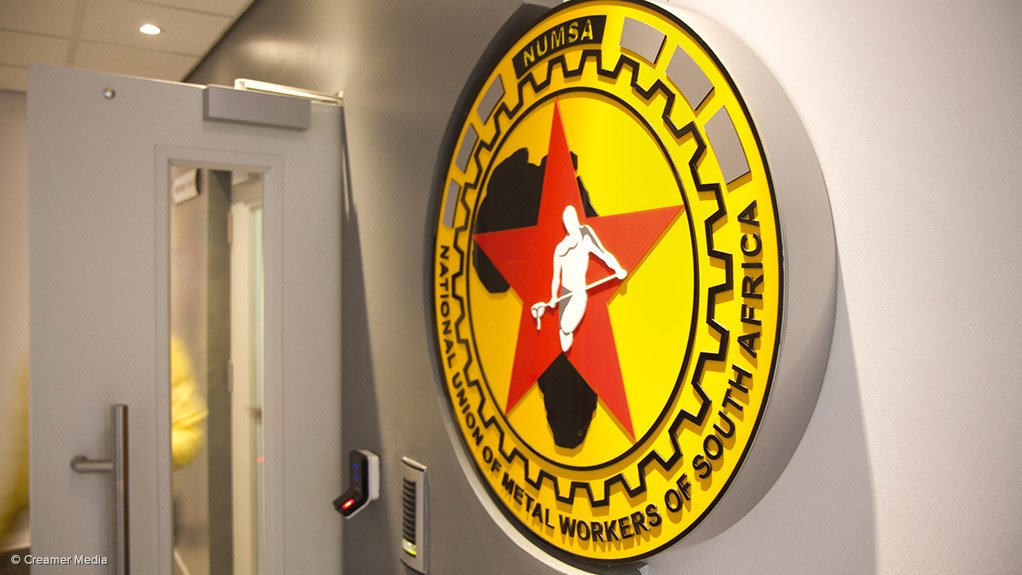The National Union of Metalworkers of South Africa (Numsa) has denied an allegation by industry body the National Employers' Association of South Africa (Neasa) that the labour union last year unconditionally capitulated to the Neasa demands tabled during the 2014 metal industry negotiations to halt the Neasa lock-out of its members.
In a statement on Tuesday, Neasa outlined that its demands, to which it said Numsa agreed, included a 7% across-the-board wage increase, a 50% reduction of the entry-level wage for new employees and a “completely revamped” exemptions policy.
This policy provided for an automatic exemption for businesses employing 50 or less employees, on a permanent basis, from the provisions of the Metal and Engineering Industries Bargaining Council’s (MEIBC’s) main agreement, which had been extended to nonparties.
The industry body claimed that Numsa had agreed to the deal to end a lock-out of its members in August last year.
However, in a statement on Wednesday, Numsa denied that it had “capitulated or conceded” to any demands by Neasa in relation to the 2014 collective bargaining wage agreement.
“What we have been doing consistently in the interests of our members and in defense of our hard won collective bargaining dispensation, is our continuous fight against the lock-out of our members by Neasa member employers.
“Currently, a small fraction of our members, are still being locked out by these employers, but a significant number of our members previously locked out have returned to work. We want to send a strong message to the employers that are still locking out our members to allow our members back without any conditions. [If they] fail to adhere to this demand, we will be left with no option but to fight these lock-outs in the streets and halt production until all our members have [been allowed to] return to work,” cautioned Numsa spokesperson Castro Ngobese.
According to Neasa, two weeks after Numsa “capitulated” to Neasa's 2014 demands, Labour Minister Mildred Oliphant signed a notice by which she extended a July 2014 agreement between the Steel and Engineering Industries Federation of South Africa (Seifsa) and trade unions to nonparties, effective from January 5, 2015.
The Labour Court in Johannesburg had since set aside this agreement – which was concluded under the auspices of (MEIBC) – finding, in December, that the agreement, which was extended by Oliphant, could not be considered representative of the positions of MEIBC members.
“The court also severely criticised the MEIBC and the Department of Labour for the irregular way in which it sought extension to nonparties of the agreement between Seifsa and the trade unions,” commented Neasa CEO Gerhard Papenfus.
Neasa had consistently opposed the extension of the deal to its members, arguing in the Labour Court that the wage increase contained therein was at an “unsustainable level” and would cause the metals and engineering industry to decline even further.
EMAIL THIS ARTICLE SAVE THIS ARTICLE
To subscribe email subscriptions@creamermedia.co.za or click here
To advertise email advertising@creamermedia.co.za or click here











